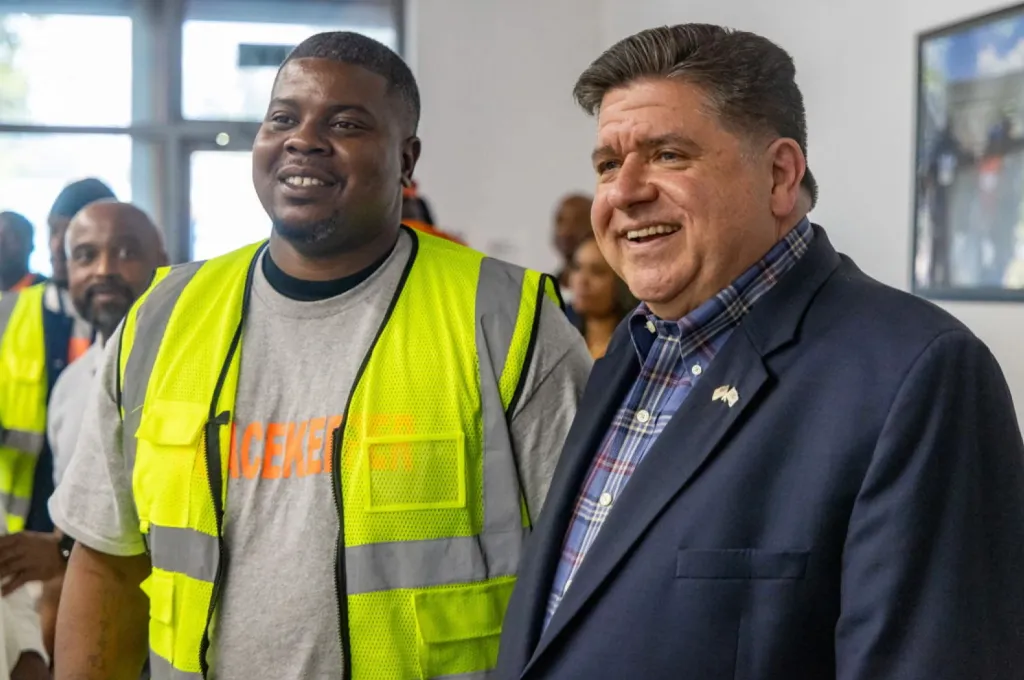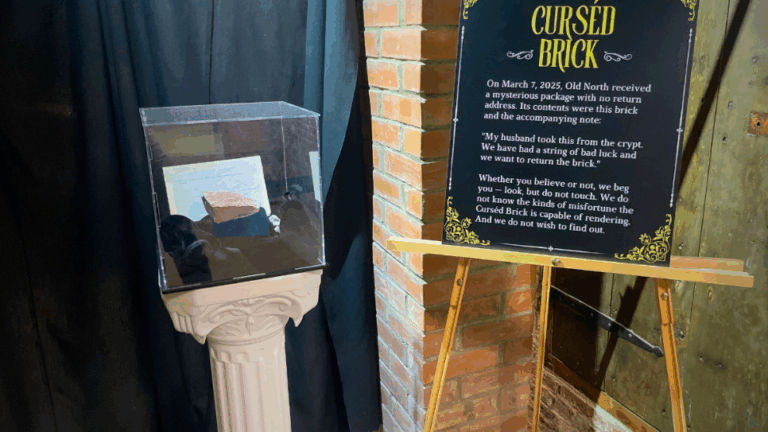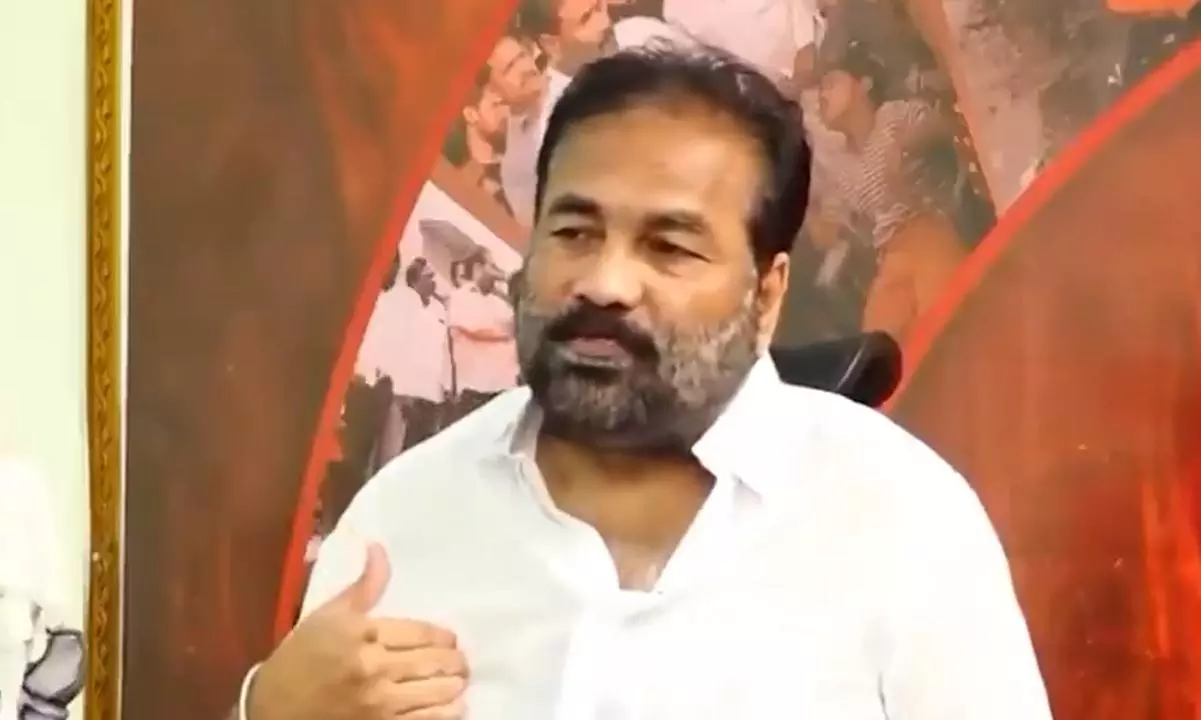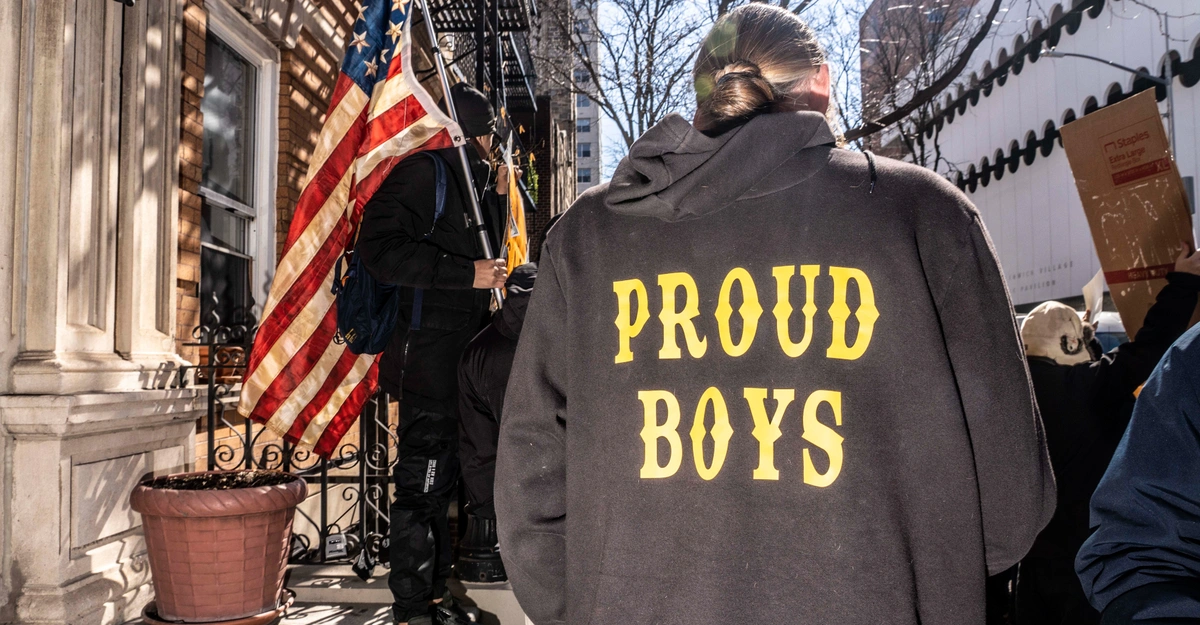
Violence intervention has become an important part of crime fighting in Chicago, with organizations sprouting up to employ people living in tough neighborhoods to try to steer vulnerable young people away from making choices that lead to violence and lawlessness.
Many of Chicago’s leading business figures, as well as the city’s top philanthropic organizations, have contributed hundreds of millions to the cause. State taxpayers are helping foot the bill as well.
But voices from the right are growing louder as they portray these efforts as, in essence, paying gang members and would-be gang members not to commit crimes. With taxpayer dollars no less.
The issue now is front and center after the news that one of the so-called peacekeepers posed for a smiling picture with Gov. JB Pritzker and then, six days later, allegedly was part of a smash-and-grab gang that plundered a Louis Vuitton store on Michigan Avenue and then killed an uninvolved driver on his way to work, crashing into his car as they attempted to flee police.
Kellen McMiller, 35, has been charged in the disturbing incident with first-degree murder among other things, along with six others who allegedly participated. Before this incident and before his photo with the governor in Chicago’s Englewood neighborhood, McMiller was reported to have four outstanding warrants in three states plus Cook County.
Community violence intervention, a concept popularized and taken mainstream in Chicago by former U.S. Education Secretary Arne Duncan, managing director of Chicago CRED, now faces perhaps its toughest public relations challenge since entering the public consciousness here roughly a decade ago. The Donald Trump administration months ago cut hundreds of millions in already-approved grants to CVI organizations around the country, including in Chicago.
So what to make of this moment? We’ve been supporters of this approach to public safety and continue to be.
Duncan and others have convincingly made the case that reaching young men in impoverished neighborhoods who are most at risk of participating in or being victims of the cycle of gun violence has to be done on the front lines by those who understand the landscape best. Inevitably, that will include people with criminal records.
In addition, the efforts have been successful, albeit there’s disagreement as to how much they should be credited for the notable downturn in violent crime this year. In areas where peacekeepers are active, gun violence is down by 41% so far this year, according to a statement by the “CVI sector” in response to the situation around McMiller. But the group acknowledged the problem: “We are constantly enhancing our screening and additional supports.”
We understand that this work, which involves thousands of people working at great risk to their personal safety in many cases, will have a few of those embroiled later in criminal activity. Duncan and others in the effort acknowledge that as well and say it’s unavoidable if violence intervention is to continue as part of our public safety strategy. We also understand that, in quickly scaling CVI in neighborhoods throughout Chicago, numerous organizations dedicated to specific communities are arising to do the work. Managing this atomized enterprise surely is challenging.
But taxpayers are helping to support these peacekeepers. Many of them, we’re sure, wouldn’t support paying someone with four outstanding warrants, even while acknowledging that the public can’t expect these organizations will use only folks with spotless records. A person with a record who has served his or her time is one thing. Someone with arrest warrants out is quite another.
These operations need to strengthen their vetting processes to identify and reject people like McMiller — at least until the individuals’ legal situations are clarified. And, just as importantly, the organizations need to be more transparent with the public about who they will employ and who they won’t — and how they’re determining who qualifies to do this important work and who is wrong for the job.



